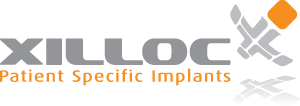 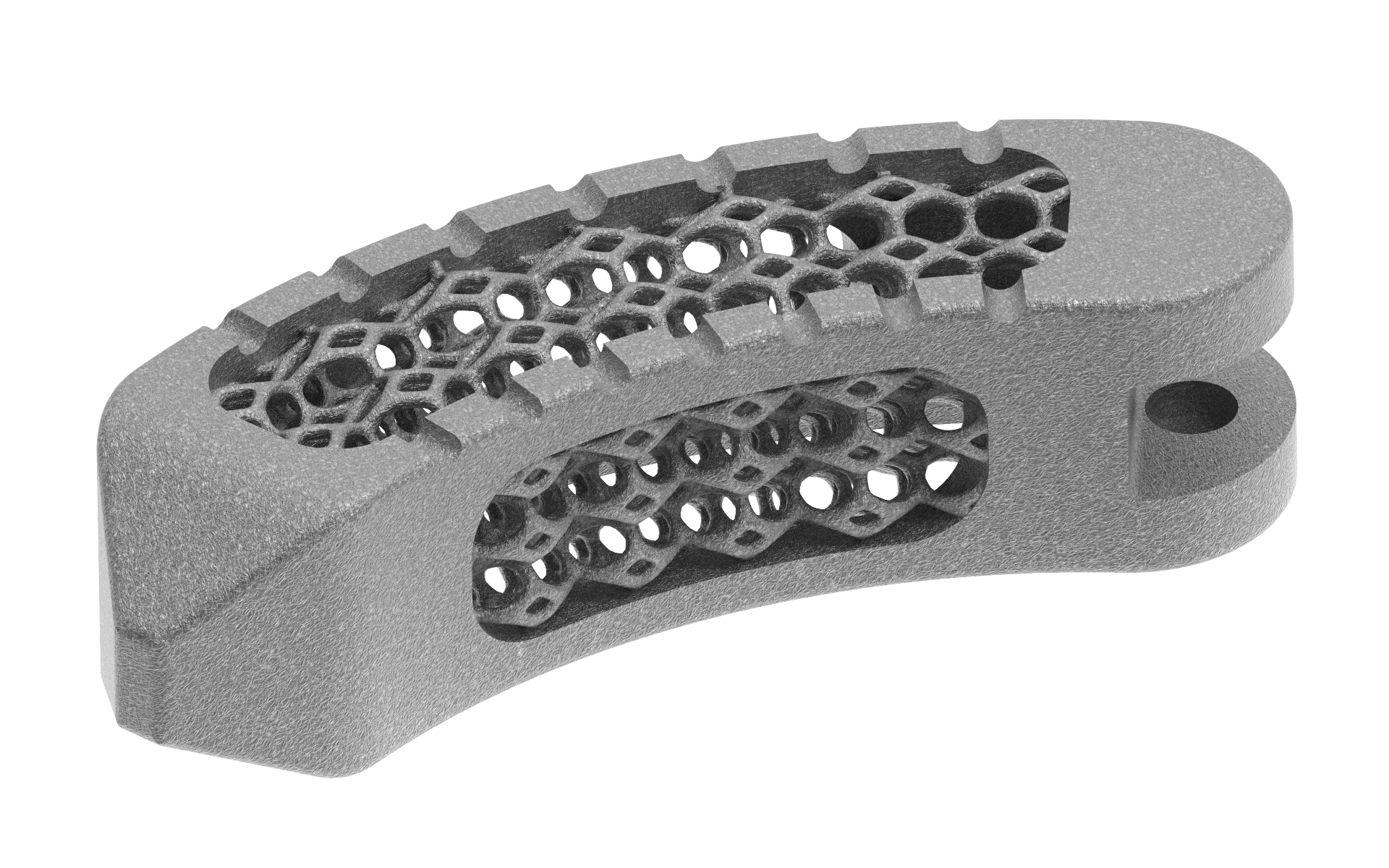 |
Contract ManufacturingIn addition to our own line of Patient Specific Implants, Xilloc offers contract manufacturing of medical devices using Additive Manfuacturing and/or CNC milling. We manufacture PEEK and titanium implants and polyamide surgical guides and anatomical models all under one roof and ISO13485 certified. We use state-of-the-art professional 3D printers and CNC milling machines. If you are looking for a qualified medical contract manufacturer, please do not hesitate to contact our engineering team. |
Manufacturing services we offer
Additive manufacturing (3D Printing) of Ti6Al4V grade 5 (Ti64) via Selective Laser Melting technology.
3D printing of titanium offers the unique possibility to include engineered porosity in your design. These porous structures / lattice structures can mimic the structure of trabecular bone and reduce the stiffness of the design to better match the mechanical properties of bone and promote osseointegration (bone ingrowth). Examples include PLIF or TLIF spinal cages.
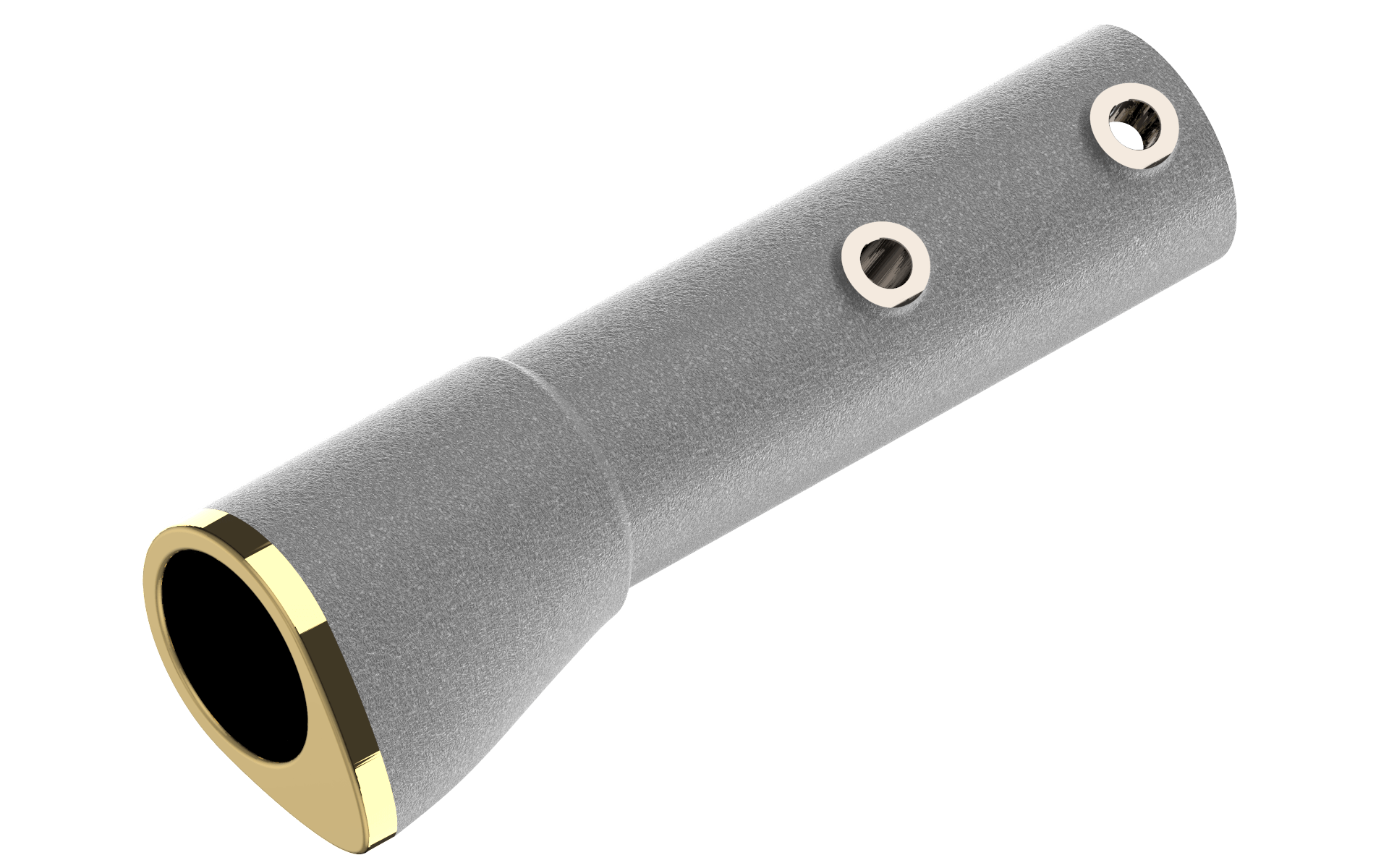 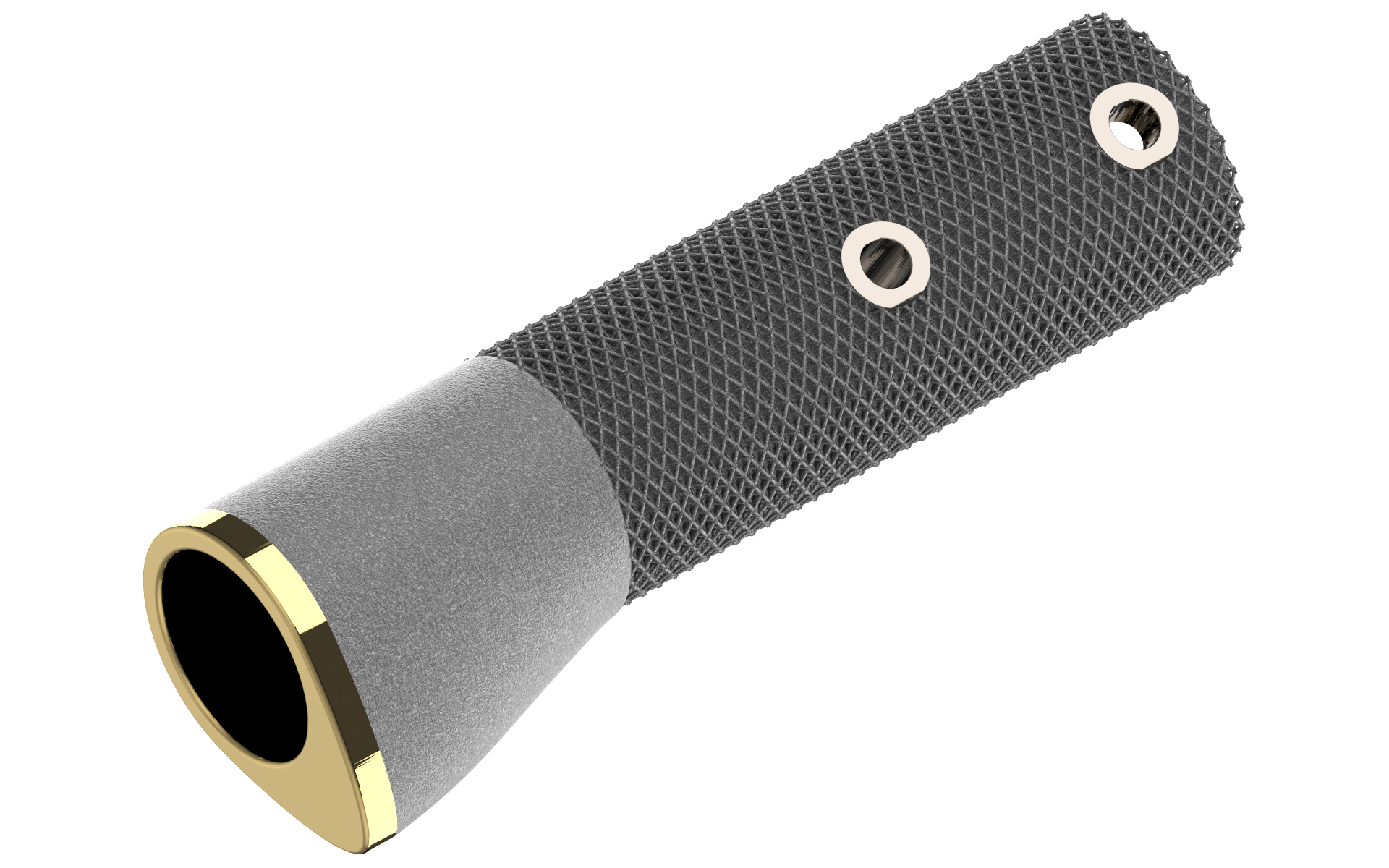 |
  |
| Osseointegration tibia implant with lattice for bone ingrowth | TLIF cage with conformal lattice |
If you need help with designing lattice structures, for example you prefer a conformal lattice over a uniform lattice, let us know.
Designing for 3D printing in metal (titanium) unfortunately also has its limitations; it’s not entirely “full freedom of design” as you often hear. Please follow these Design Guidelines for 3D printing in metal to help you to make a perfect design that is suitable to be 3D printed in metal. Furthermore, if you require accurate surfaces we can offer CNC milling as a post-processing step.
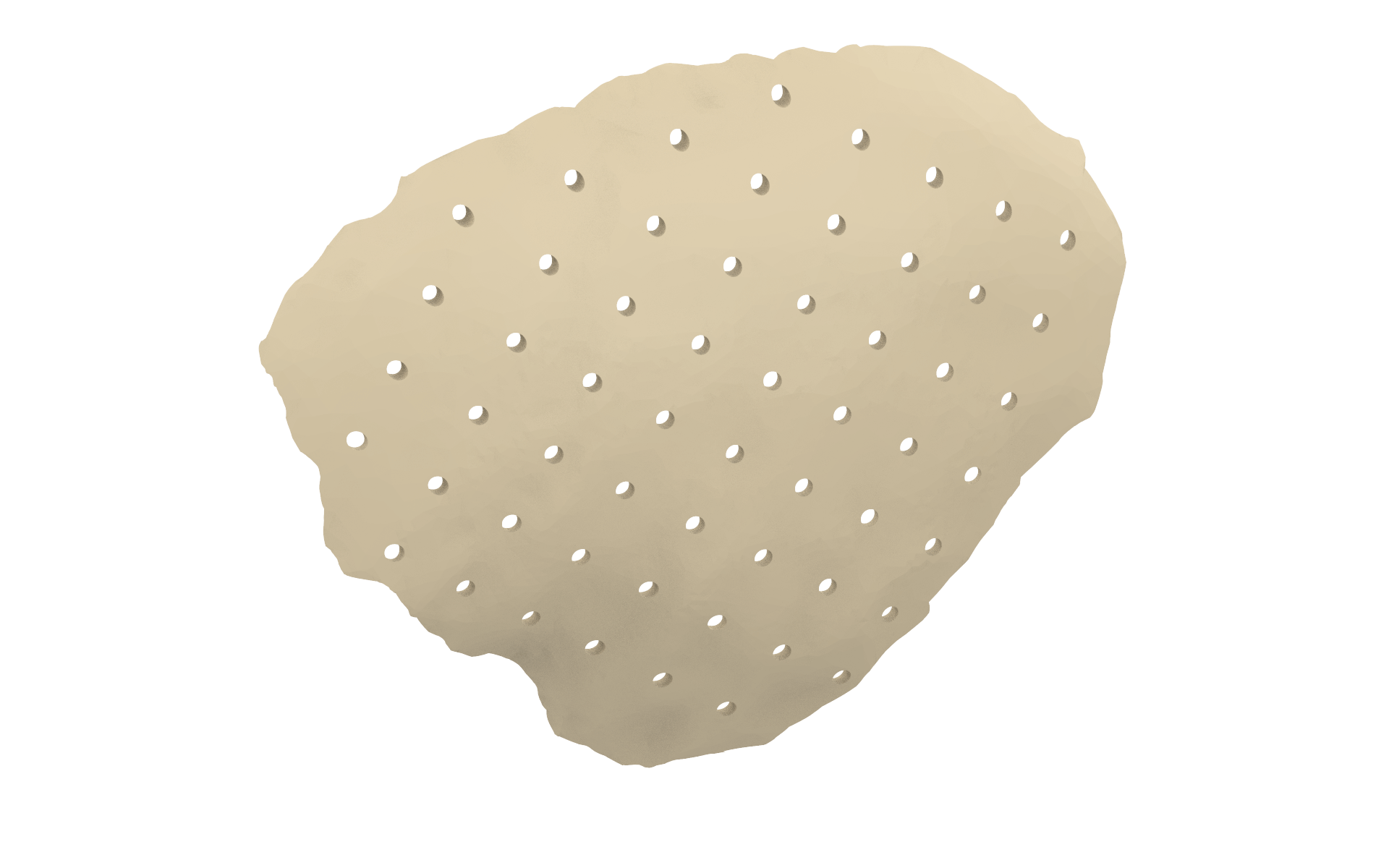 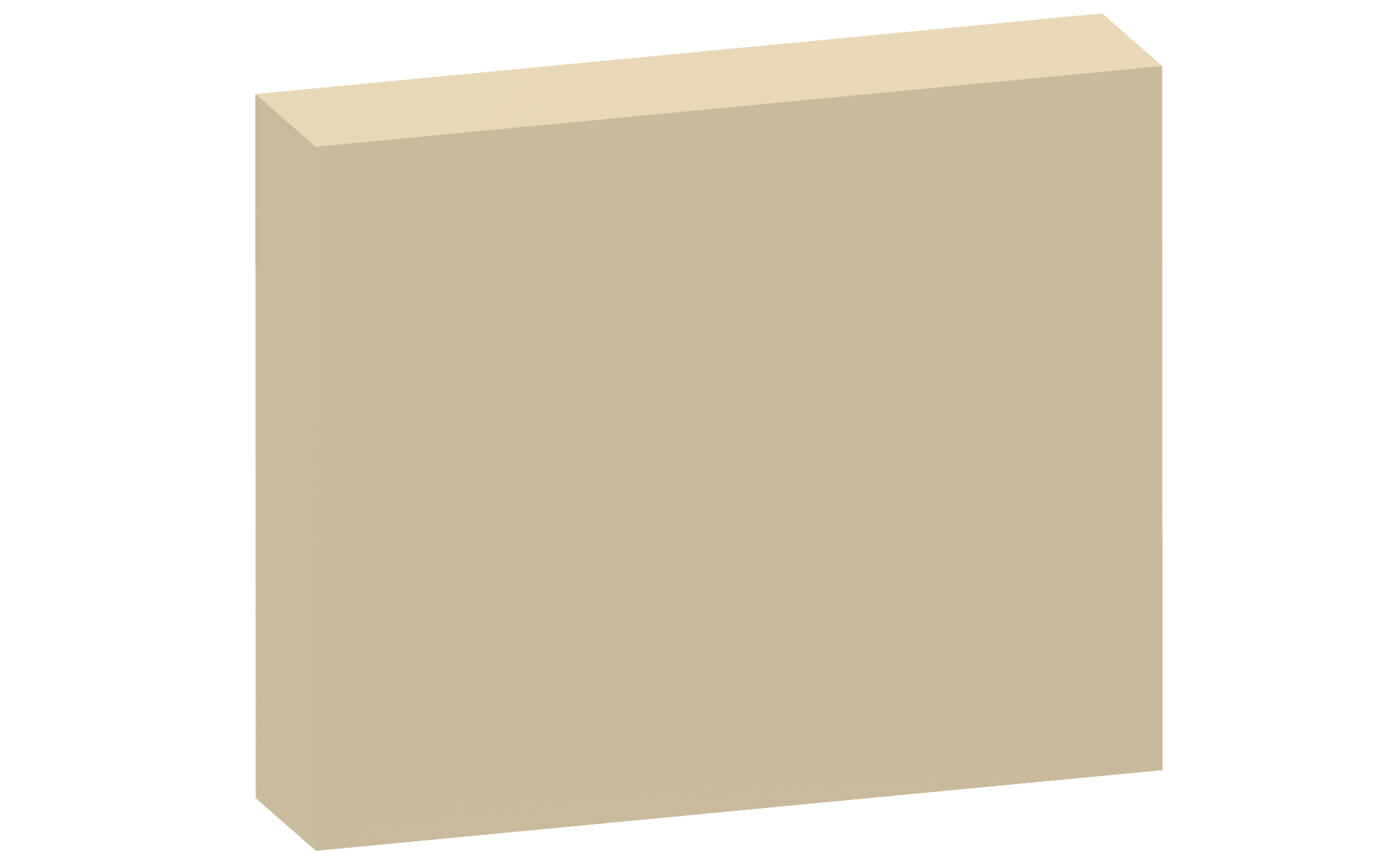 |
PEEK is an awesome biomaterial with mechanical properties close to cortical bone and is used in a variety of applications.
Advantages of PEEK:
Optionally, we can license our patented tangential fixation method and patented suture method.
|
| Example of a PEEK cranial implant |
Selective Laser Sintering (SLS) of Polyamide (PA2200) surgical guides (see examples), (arm) splints and anatomical models.
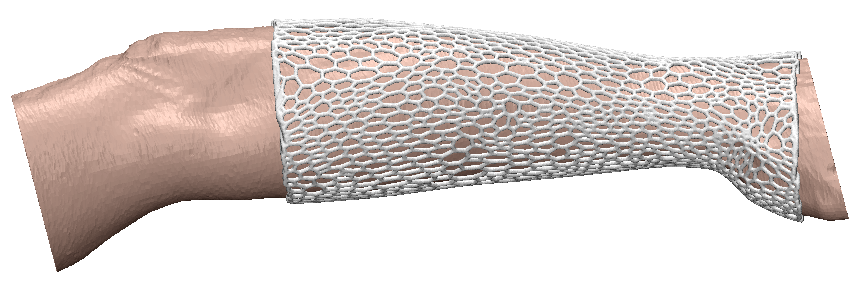
Arm splint in polyamide
Advantages of PA2200:
- Strong yet flexible (doesn’t break if you accidentally drop it)
- Can be sterilized with steam (autoclave)
- Full freedom of design (even working assemblies are possible)
- Dish-washer safe
The surface roughness of 3D printed titanium “as-built” is approximately Ra=7µm. Whereas this roughness is desirable in many implants since it increases the surface area and as such improves osteoconduction and/or osseointegration, some applications require a smoother surface.
Therefore additionally we offer several surface treatment methods:
- Shotblasting
- Screw thread tapping or milling
- Milling of 3D printed titanium (to Ra=0,3µm)
- Polishing (to Ra=0,06µm)
- Slide grinding
- Turning
Using a fiber laser system your logo (and reference number) can be engraved on your PEEK or titanium parts.
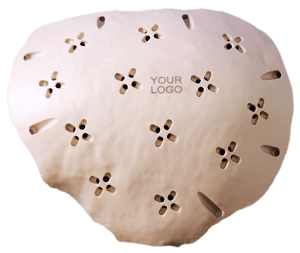
PEEK implant with your logo
Coatings can be applied to achieve desired surface properties. Through our trusted subcontractors we can offer various coatings.
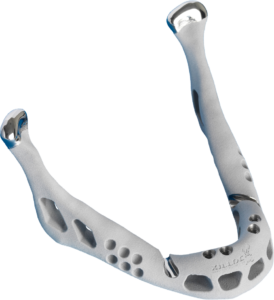
Mandible with HA coating
Examples of coatings:
- Hydroxyapatite (HA) coating on titanium
- Titanium Niobium Nitride on titanium
- Titanium coating on PEEK
Hot Isostatic Pressing (HIP) treatment can be applied to 3D printed titanium parts to improve the fatigue properties. This is especially advised for load-bearing (orthopaedic) applications.
While we take the utmost care to avoid contamination during manufacturing and to keep the bioburden to a minimum, we also offer ultrasound cleaning (and packaging) in a ISO class V cleanroom.
